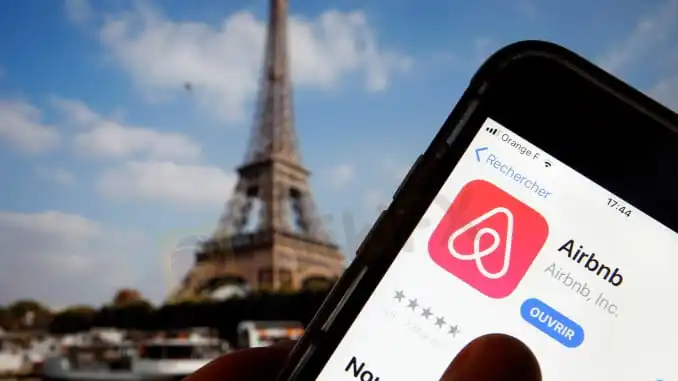简体中文
繁體中文
English
Pусский
日本語
ภาษาไทย
Tiếng Việt
Bahasa Indonesia
Español
हिन्दी
Filippiiniläinen
Français
Deutsch
Português
Türkçe
한국어
العربية
Airbnb avoids tougher regulation in Europe as EU court rules it’s not an estate agent
Abstract:Airbnb has won a court battle in the EU affecting how the company is regulated in the future. The EU’s top court has ruled that Airbnb is not an estate agent but an “information society service,” meaning it can avoid certain responsibilities.
Airbnb has won a court battle in the EU affecting how the company is regulated in the future. The EUs top court has ruled that Airbnb is not an estate agent but an “information society service,” meaning it can avoid certain responsibilities.

The challenge to Airbnb was brought by a French tourism and hotel association, but the decision from the Court of Justice of the European Union means the US company will continue to operate as an e-commerce platform, without being subject to property rules.
These include Frances tough Hoguet law, which could have led to criminal sanctions for Airbnb. The company could have also faced new constraints in other key markets like Amsterdam, Paris, and London. In response to the ruling, Airbnb told Bloomberg that it will “move forward and continue working with cities on clear rules.”
Airbnb is not the only tech firm to have confused lawmakers with how it should be regulated. In many cases, the choice sits between regulating these companies with the same rules that apply to their non-digital counterparts, versus regulating them like an e-commerce platform, which usually means lighter controls.
Uber is a firm that‘s faced similar challenges, but back in 2017 the same EU court ruled that the company is a transportation service, not a platform. The difference between Uber and Airbnb, says the court, is how much control Airbnb has over the services hosted on its platform. Airbnb allows property owners to set their own prices and rent their homes through other channels, while Uber controls pricing and automatically pairs up sellers and customers. In the end, the court wasn’t convinced that Airbnb has a “decisive influence” over the accommodation offered on its platform, according to BBC News.
Despite Airbnb escaping France‘s tough regulations, the association that originally brought the complaint, France’s Association for Professional Tourism and Accommodation, told Bloomberg the ruling was positive. “We filed our complaint in 2015, and France has since introduced new regulations that apply also to Airbnb,” said an official. “Eventually Airbnb is going to be regulated in France, just not as a real estate agent at this point.”
This new regulation might not be far away. Politico notes that the European Commission‘s president, Ursula von der Leyen, has said that the body hopes to revise the EU’s e-commerce directive as part of a push to regulate online businesses.
Disclaimer:
The views in this article only represent the author's personal views, and do not constitute investment advice on this platform. This platform does not guarantee the accuracy, completeness and timeliness of the information in the article, and will not be liable for any loss caused by the use of or reliance on the information in the article.
Read more
The richest place in every state in the US - Business Insider
The richest town in the entire US is a Silicon Valley enclave where the median income is over $250,000 and the typical home is worth over $2 million.
Hays Travel to buy Thomas Cook's UK stores, says government agency - Business Insider
Britain's insolvency agency said on Wednesday that Hays Travel had reached an agreement with Thomas Cook Group, a month after the company's collapse.
Life in Monaco, the glamorous city-state on the French Riviera
A few things come to mind when most people think of Monaco, the city-state on the French Riviera: gambling, yachts, and the ultra-wealthy.
Disappointing photos show what Venice looks like in real life
Venice, Italy is one of the top tourist destinations in the world. But the hordes of tourists and cruise ship accidents may make you rethink a visit.
WikiFX Broker
Latest News
Russia to Fully Ban Crypto Mining in 10 Regions Starting January 1, 2025
Why is there so much exposure against PrimeX Capital?
Two Californians Indicted for $22 Million Crypto and NFT Fraud
WikiFX Review: Is Ultima Markets Legit?
Colorado Duo Accused of $8M Investment Fraud Scheme
What Impact Does Japan’s Positive Output Gap Have on the Yen?
Malaysia Pioneers Zakat Payments with Cryptocurrencies
FCA's Warning to Brokers: Don't Ignore!
SEC Warns on Advance Fee Loan Scams in the Philippines
OFX: Is It Good to Go? Broker Review
Currency Calculator


